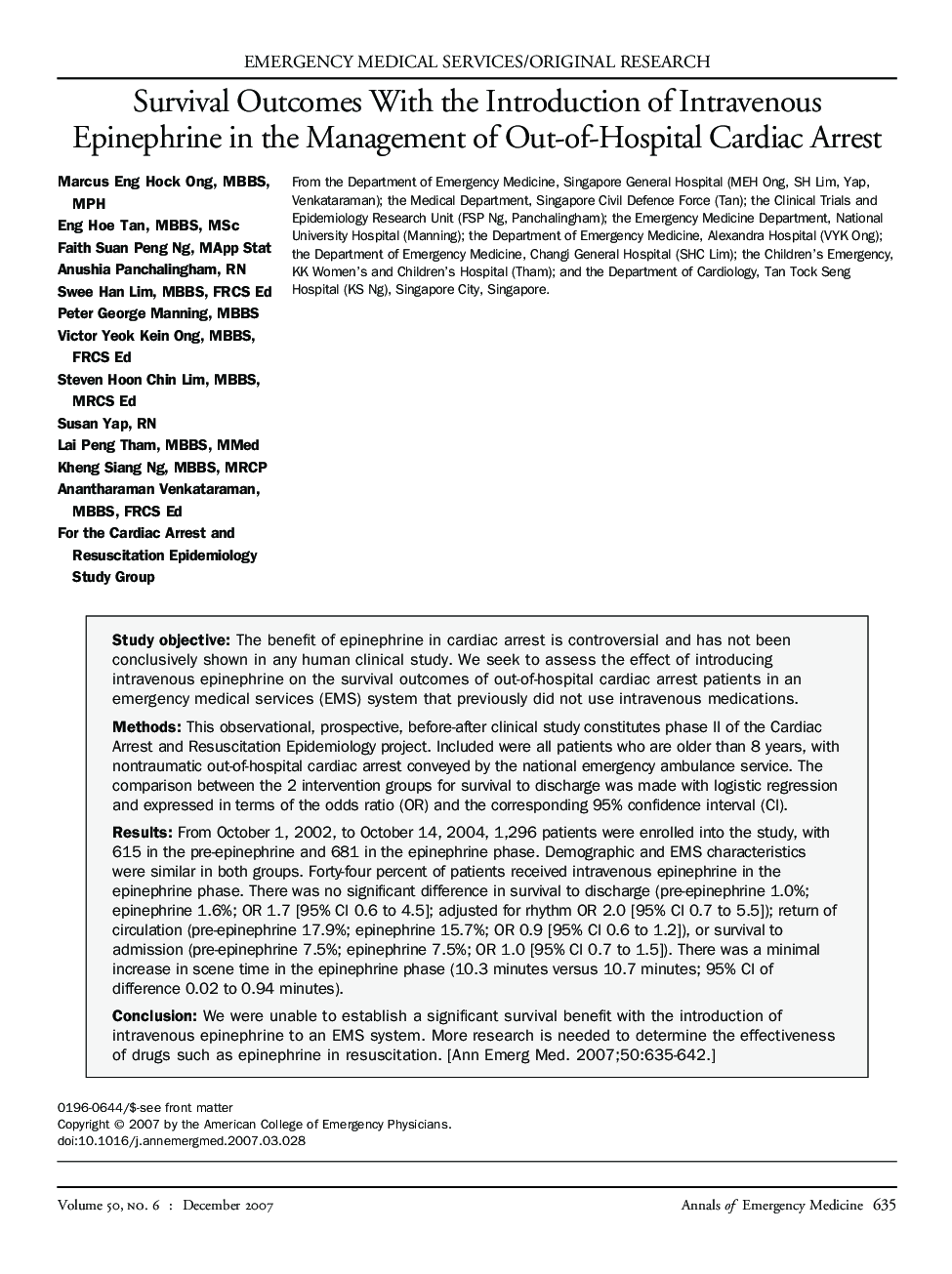| Article ID | Journal | Published Year | Pages | File Type |
|---|---|---|---|---|
| 3233168 | Annals of Emergency Medicine | 2007 | 8 Pages |
Study objectiveThe benefit of epinephrine in cardiac arrest is controversial and has not been conclusively shown in any human clinical study. We seek to assess the effect of introducing intravenous epinephrine on the survival outcomes of out-of-hospital cardiac arrest patients in an emergency medical services (EMS) system that previously did not use intravenous medications.MethodsThis observational, prospective, before-after clinical study constitutes phase II of the Cardiac Arrest and Resuscitation Epidemiology project. Included were all patients who are older than 8 years, with nontraumatic out-of-hospital cardiac arrest conveyed by the national emergency ambulance service. The comparison between the 2 intervention groups for survival to discharge was made with logistic regression and expressed in terms of the odds ratio (OR) and the corresponding 95% confidence interval (CI).ResultsFrom October 1, 2002, to October 14, 2004, 1,296 patients were enrolled into the study, with 615 in the pre-epinephrine and 681 in the epinephrine phase. Demographic and EMS characteristics were similar in both groups. Forty-four percent of patients received intravenous epinephrine in the epinephrine phase. There was no significant difference in survival to discharge (pre-epinephrine 1.0%; epinephrine 1.6%; OR 1.7 [95% CI 0.6 to 4.5]; adjusted for rhythm OR 2.0 [95% CI 0.7 to 5.5]); return of circulation (pre-epinephrine 17.9%; epinephrine 15.7%; OR 0.9 [95% CI 0.6 to 1.2]), or survival to admission (pre-epinephrine 7.5%; epinephrine 7.5%; OR 1.0 [95% CI 0.7 to 1.5]). There was a minimal increase in scene time in the epinephrine phase (10.3 minutes versus 10.7 minutes; 95% CI of difference 0.02 to 0.94 minutes).ConclusionWe were unable to establish a significant survival benefit with the introduction of intravenous epinephrine to an EMS system. More research is needed to determine the effectiveness of drugs such as epinephrine in resuscitation.
